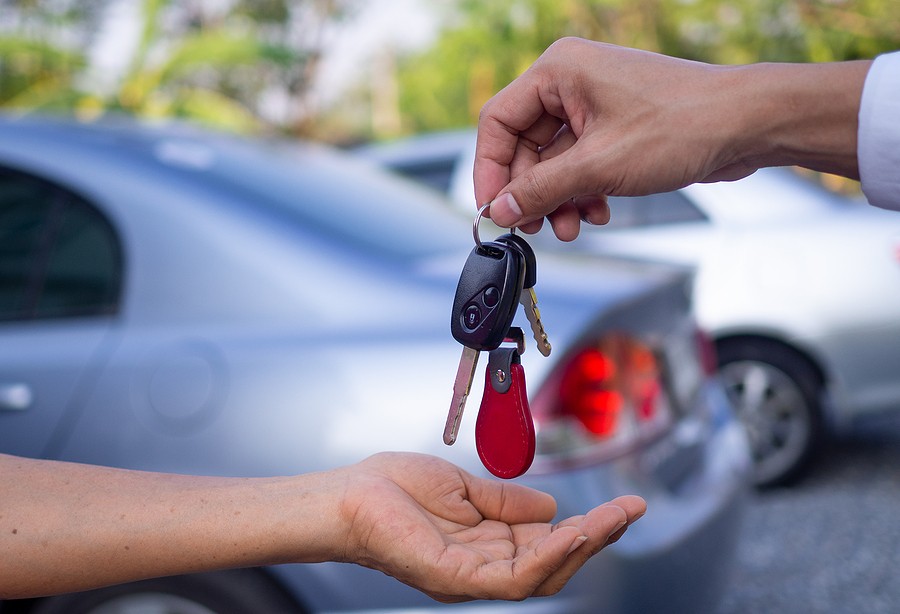They don't make them like they use to, at least that's how the saying goes. So how long is the average lifespan of a car exactly?
Whether you're interested in purchasing a new car or wondering if your car is nearing it's last days, we're here to help.
Read on to learn more about the average lifespan of a car and what you should expect.

Reasons to Know the Average Lifespan of a Car
Knowing how long you can expect a vehicle to last can be helpful for a variety of reasons. This can help to determine how long to keep a car, when to start shopping for a new car, and what value to expect when selling.
This can be extremely helpful if you're getting ready to invest a lot of money in repairs. Making repairs to an older car which is losing value may not make sense.
This is especially the case if, depending on your vehicle's mileage, your car may be on the brink of even more issues. There's no use spending money to repair a car that's junk.

What's Normal?
Are you wondering what the average lifespan of your car would be? Well, there is no one right answer. Much of this depends on the kind of vehicle you purchased.
Some cars are more reliable than others. Statistically, Japanese and Korean cars have one of the best track records when it comes to reliability. European cars tend to have the most issues over time. American cars tend to fall somewhere in the middle.
For American cars, Ford tends to wear a bit better than GM or Chrysler. For foreign models, Toyota, Honda, and Lexus come out top of the heap.
So what's the average lifespan for modern vehicles? It's usually somewhere around 8 years. This can depend a lot on how much you're driving as well, so your mileage also plays a huge role in the life of your vehicle.
150,000 tends to be the mark for when vehicles begin to decline. If your car is already above the 150,000-mile mark, congratulations! Your vehicle is paying you back for the time you've dedicated to keeping it in top shape.
The 200,000-mile mark, however, is usually a yellow light for your vehicle. If it's still running great, you're in luck. You should, however, adjust your expectations for its future and begin exploring your options. It may be time to start shopping for a new car.
Checking out Consumer Reports can also help you gauge what to expect from your vehicle.
How to Ensure Your Vehicle's Health – Average Life Span of A Car
Ensuring your vehicle's health means scheduling regular maintenance for your car. This means regular tune-ups and oil changes are essential.
Caring for your car is sort of like aging. If you take care of yourself, exercise regularly, and go to the doctor for regular checkups, you're likely to live longer. The sample principles are true for your vehicle.
So what's the rule of thumb for vehicle maintenance? Don't go more than 10,000 miles without changing the oil, for starters.
If your brake pads are wearing thin, it can be tempting to wait until it's too late. Don't let your brake pads wear below 1/4 inch. Doing so can cause damage to your rotors, which can cost you far more in the long run. Spark plugs, on the other hand, should be changed at around the 100,000-mile mark.
What's that sound? If you hear something that sounds amiss, head to your mechanic asap! Screeching brake pads and unusual engine sounds are your vehicle telling you its time for a visit.
Don't wait too long. If you head to your mechanic at the first warning signs, it's likely to be a minor repair. These issues, however, if left unchecked can turn into expensive issues over time.

Don't Skimp on What's Suggested for Your Vehicle
If your vehicle requires premium fuel, don't skimp at the pump. Doing so can cause issues with your vehicle's engine. If your car doesn't require higher-octane gas, don't worry about it. You won't improve your vehicle's health by opting for the more expensive choice.
Another wise investment is quality replacement parts. You'll want to be sure that you're using name brand belts and hoses, check your owners manual for more on what your vehicle requires.
Your owners manual will also detail the correct fluids you should be using. Using the right kind of oil and transmission fluid is important to your vehicle's health.
Where to Go to Keep Your Vehicle in Good Health – Average Life Span of a Car
Does this all seem a bit overwhelming? It's ok. Knowing all the things that your vehicle needs can sound like a headache. If you're constantly on the go, you may not have time to keep stock of it all.
You don't really have to worry about learning all of this if you're taking your vehicle to a quality mechanic. Having a good family mechanic is similar to having a trusted family doctor. If your car is still relatively new, you may consider taking it to the dealership's service department. A good mechanic can keep your car living above the average life span of a car.
We also recommend keeping a folder for service records. Every time you go to get your vehicle service, you should be provided an itemized receipt for the work that's been done. This can help you keep up with when parts will need to be replaced and when you should return for your next tune-up.
Keeping these records organized can be a smart choice for many reasons. When you're ready to sell your vehicle, having your service records on hand can be a huge help.
This can help to raise the value of your car, especially when selling to a private party.

The Exceptions
Well built cars have a longer window of life. You may wonder why sometimes you see classic cars still running well beyond the average lifespan. This is for a couple of reasons.
Number one, many of these cars have fewer parts than modern vehicles. This can make repairs easier because it limits just how much can do wrong.
Another reason? Most of these cars aren't driven daily. People who drive classic cars also have a “daily driver”. Simply put, the same adage still rings true.
The more miles you put on a car, the more problems you can expect.
Know When to Say Goodbye – Average Life Span of A Car
Sometimes, you're just unlucky. If your car has had more issues than normal, you may have a lemon on your hands. This could shorten the life span of a car.
If you experience major issues with your vehicle not long after purchase, you may have legal recourse. If you're past the window of opportunity for action, you may be out of luck.
Other signs that it's time to say goodbye may come after unanticipated events, like a major accident or a flood. Rust can also cause major damage to your vehicle that can compromise its integrity.
More signs that it's time to say goodbye? Check out your vehicle's value. If the price of repair exceeds your vehicle's value, it may be the end of the road.
It may not be wise to sink more money into a vehicle when you know will there will likely be more problems ahead. Saying goodbye can be hard, especially if you love your vehicle. It can, however, be a smart choice in the long run.
When it's time to say goodbye, you'll want to ensure that you get as much money as you can for your vehicle. If you managed to squeeze all of the life out of your vehicle, there are still options.
Selling your old car for parts or as junk can still help you put a few bucks in your pocket. This can be especially helpful as you'll be needing to purchase a new vehicle.

Planning for the Future
If you plan to purchase a new vehicle, be sure to do your due diligence. Picking a reliable model can help save you a lot of cash in the long run.
If you're considering a used vehicle, be sure to run the vehicle's VIN number through carfax. This will reveal any accidents that the buyer may have failed to disclose. Regardless of how trustworthy the seller seems, you should always have the vehicle inspected by an independent mechanic before you purchase.
If the vehicle has service records, be sure to look them over as well. You'll want to know if the car has had major issues in the past.
The End of the Road: Your Next Steps – Average Life Span of A Car
Now that you know the average lifespan of a car, you'll know when it's time to say goodbye. For more on how you can get the most for your vehicle, visit our website.
We buy cars for cash regardless of their condition and even have an easy to use tool to get an instant quote today.
So check out your options and get back out there. We'll put some cash in your wallet and help you get back on the road for another 200,000 miles.




